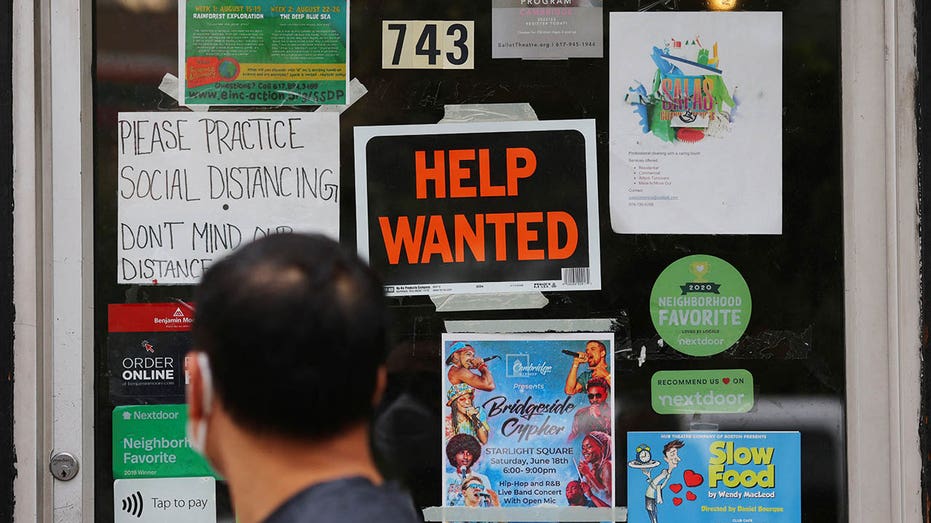Experts debate benefits of quiet hiring: 'Temporary solution,' 'nothing new about it'
Quiet hires should expect 'more pay,' a 'one-time bonus,' or even extra 'PTO,' one HR expert said
'Quiet quitting' can be curbed: Dean Lindsay
The Progress Agents LLC CEO Dean Lindsay argues helping quiet quitting comes down to 'internalized reasons.'
Less than a year after TikTok made "quiet quitting" famous, a new trend is gaining momentum on LinkedIn and Twitter. Known as "quiet hiring," the term has divided business leaders and HR pros, with some arguing that it will help workers negotiate for higher pay and benefits.
"Quiet hiring" is when a business retrains its workers and gives them new skills to fill in gaps in a business, often caused by labor shortages. Another critical part of quiet hiring includes hiring short-term talent, like contractors, to fill a pressing need, Harvard Business professor Joseph Fuller told Fox News Digital.
But Twitter users were largely negative on the new trend, arguing that it struck too close to "quiet quitting," a trend that dominated headlines in 2022.
AS GEN Z OPTS OUT OF BLUE-COLLAR WORK IN AMERICA, EXPERT SHARES BENEFITS OF LEARNING A TRADE

One HR expert telling Fox News Digital that quiet hiring was an opportunity for workers to negotiate for higher pay and benefits. (iStock / iStock)
The New School senior fellow Nina Turner wrote that quiet hiring was a way to describe employers taking advantage of workers. "Apparently, quiet hiring is when a company asks existing employees to do more than one job without a raise in pay. If your company starts quiet hiring, it’s time to quiet organize."
Atlantic staff writer Derek Thompson said that it was another phrase created to describe a normal phenomenon in the work world. "In 2022, we had to invent the phrase ‘quiet quitting’ to describe workers adequately doing their job, so in 2023 we have to invent a phrase ‘quiet hiring’ to describe managers adequately doing their job."
But experts were more divided on the trend, with one HR expert telling Fox News Digital that quiet hiring was an opportunity for workers to negotiate for higher pay and benefits.
That's because if a business asks employees to take on new responsibilities, they will be "compensated" for it, Gartner "Future of Work" expert Emily Rose McRae told Fox News Digital.
"It might be more pay, it might be a one-time bonus, it might be an automatic bump up during performance review time," she said. "It might be more PTO, it could be a more flexible schedule."
Quiet hiring without compensating workers was one of the biggest misunderstandings around quiet hiring, McRae said.
"Quiet hiring is adding more skills and abilities without adding more headcount. But that doesn’t mean you don’t compensate them."
In other words, many companies are facing a talent shortage, and one way to alleviate that is to either hire short contract workers or retrain workers within an organization to do new jobs.

The bottom line, McRae said, is that quiet hiring offers current employees leverage in negotiations with employers.
She also explained that quiet hiring was different from "internal mobility" or "career growth" because the trend is being driven by leadership.
"What’s different here is that this is not happening on an individual level, or even a team level. This is happening at a senior executive level."

Harvard Business School professor Joseph Fuller told Fox News Digital that he was cautiously optimistic about quiet hiring. (REUTERS/Brian Snyder / Reuters Photos)
LOCAL STORE SIGN ABOUT 'TRIGGERS' IGNITES DEBATE ON REDDIT: 'NOBODY'S RESPONSIBILITY BUT YOUR OWN'
But some experts disagreed with McRae, arguing that "quiet hiring" is a new term for an old phenomenon.
"The new work catch-phrase for 2023 is ‘quiet hiring,' but there’s nothing new about it," VP of HR Client Strategy at Upwork Tony Buffum said.
He continued: "Practices such as reskilling and redeploying employees within an internal workforce has been a common strategy for workforce management, especially for front-line work."

(iStock / iStock)
Even outside traditional employees, contracting has also been used "for decades," Buffum added.
Crawford Thomas Recruiting President William Stonehouse III was supportive of quiet hiring, as long as it’s fair.
"I am always a proponent of doing as much as you can with the people you’ve got, but I also believe they must be fairly compensated and absolutely not exploited," Stonehouse said.
But it's not a strategy that should be used forever, he added.

"Quiet hiring is a terrible long-term plan and should only be used as a temporary solution," Crawford Thomas Recruiting President William Stonehouse III told Fox News Digital. (iStock / iStock)
"Quiet hiring is a terrible long-term plan and should only be used as a temporary solution. If you can’t increase the employees' pay immediately for picking up the extra work, it should be heavily considered in the near future when you are reorganizing or evaluating annual pay."
Harvard Business School professor Joseph Fuller told Fox News Digital that he was cautiously optimistic about quiet hiring.
"I think net it's positive because of choice, because of flexibility."
Quiet hiring means "more opportunities" for workers, Fuller added.
GET FOX BUSINESS ON THE GO BY CLICKING HERE
And while it's an "indirect benefit," quiet hiring also makes the economy "more productive and grow faster," Fuller added.




















